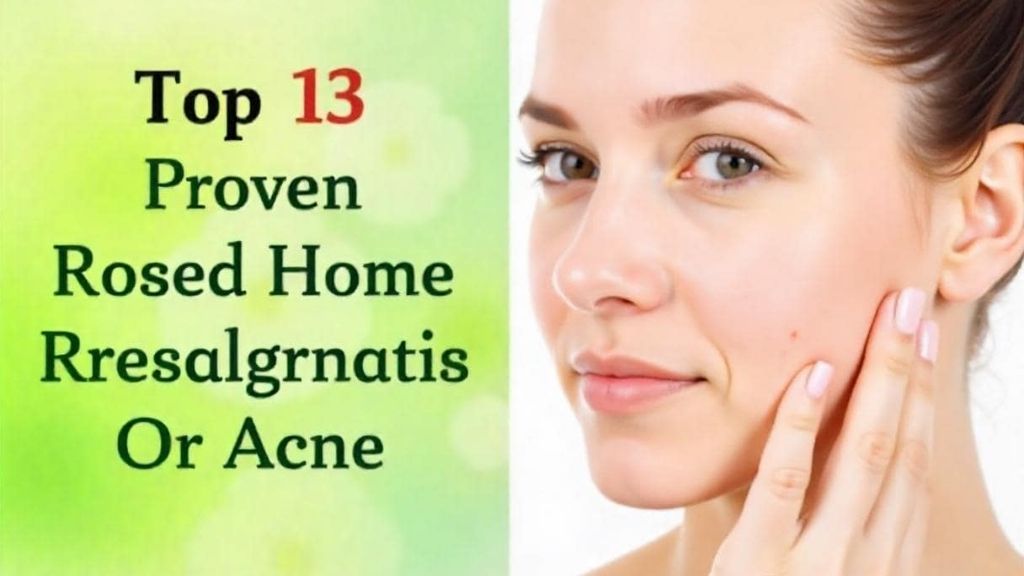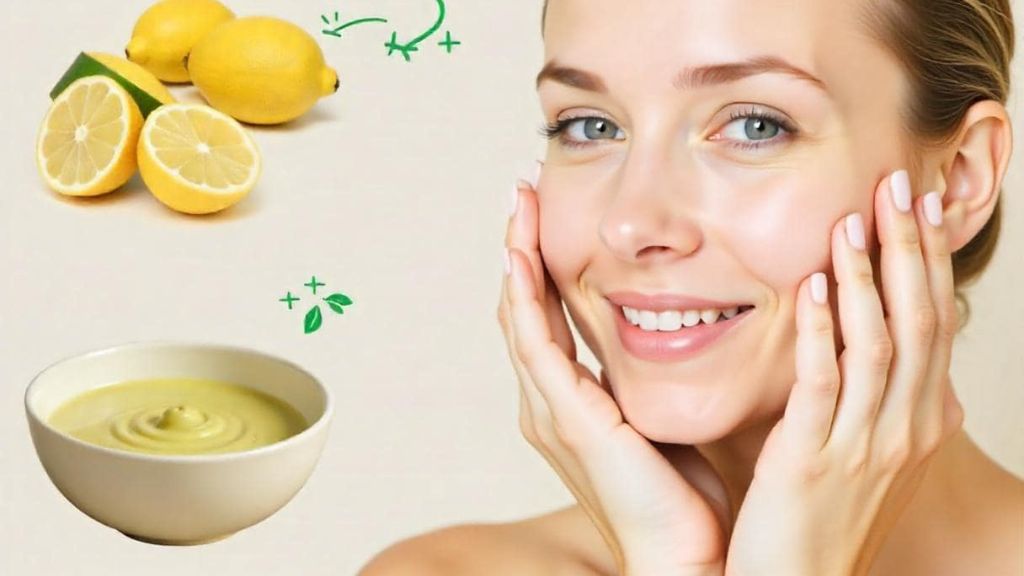Acne is one of the most common skin conditions in the world, affecting millions of people across all age groups. While there are countless over-the-counter and prescription treatments available, natural and home remedies for acne have garnered significant attention due to their affordability and minimal side effects. This article explores 13 scientifically-backed acne remedies that can help reduce breakouts, improve skin clarity, and restore your confidence.
1. Tea Tree Oil – A Natural Antibacterial Powerhouse
Tea tree oil is well-known for its potent antibacterial and anti-inflammatory properties. Derived from the leaves of the Melaleuca alternifolia tree, this essential oil has shown to be as effective as benzoyl peroxide in reducing acne lesions when used in diluted form.
How to use:
- Mix 1 part tea tree oil with 9 parts water.
- Apply with a cotton swab directly on pimples.
- Use once or twice daily to avoid skin irritation.
2. Aloe Vera – Nature’s Soothing Gel
Rich in antioxidants and enzymes, aloe vera gel is not only soothing but also highly effective in fighting acne-causing bacteria. Its salicylic acid content helps unclog pores and reduce inflammation.
- Apply pure aloe vera gel directly to the face.
- Let it sit for 10–20 minutes before rinsing off.
- Use twice daily for optimal results.
How to use:
3. Apple Cider Vinegar – The Skin’s pH Balancer
Apple cider vinegar contains acetic, citric, and succinic acids which have been shown to kill acne-causing bacteria like Propionibacterium acnes. It also helps in balancing the skin’s natural pH and exfoliating dead skin cells.
How to use:
- Mix 1 part ACV with 3 parts water (use more water for sensitive skin).
- Apply gently with a cotton pad and rinse after 5 minutes.
- Limit usage to once a day to prevent dryness or irritation.
4. Zinc Supplements – Internal Acne Control
Zinc is an essential nutrient involved in wound healing and reducing inflammation. Several studies have confirmed that zinc supplementation can significantly reduce the frequency and severity of acne outbreaks.
Recommended dosage:
- 30–45 mg of elemental zinc per day.
- Avoid overuse as excessive zinc can lead to side effects like nausea.

5. Green Tea – Antioxidant-Rich Skin Therapy
Green tea is loaded with polyphenols that fight inflammation and reduce sebum production, two primary factors in acne development. Topical application of green tea extracts has proven to be highly effective in acne-prone skin.
How to use:
- Brew green tea and let it cool.
- Apply with a spray bottle or cotton pad.
- Alternatively, use green tea extract creams for enhanced results.
6. Witch Hazel – A Gentle Astringent for Sensitive Skin
Witch hazel contains tannins, which have strong anti-inflammatory and antimicrobial effects. It helps in reducing redness, tightening pores, and drying out whiteheads and blackheads.
How to use:
- Soak a cotton ball in pure witch hazel extract.
- Apply to clean skin, especially oily areas.
- Use once or twice daily.
7. Honey and Cinnamon Mask – A Bacterial Combat Duo
Both honey and cinnamon are rich in antioxidants and possess antibacterial properties. Together, they create a powerful face mask that combats bacteria and soothes inflamed skin.
How to prepare:
- Mix 2 tablespoons honey and 1 teaspoon cinnamon.
- Apply as a mask and leave on for 10–15 minutes.
- Rinse thoroughly with lukewarm water.
8. Fish Oil Supplements – Omega-3s for Skin Health
Omega-3 fatty acids, especially EPA and DHA, help reduce inflammation and regulate oil production in the skin. These benefits can significantly reduce the occurrence of acne over time.
Recommended intake:
- 1,000–2,000 mg of combined EPA and DHA daily.
- Look for supplements with minimal additives for best results.
9. Exfoliate with Natural Scrubs – Prevent Clogged Pores
Regular exfoliation removes dead skin cells that clog pores and cause breakouts. However, harsh scrubs can irritate the skin, so opt for natural exfoliants like sugar or oatmeal.
How to use:
- Mix 1 tablespoon of sugar or oatmeal with honey or coconut oil.
- Gently massage into skin for 2–3 minutes.
- Rinse with warm water. Use 2–3 times per week.
10. Reduce Dairy Intake – A Dietary Trigger for Some
Several studies suggest that dairy products, particularly skim milk, may contribute to acne due to hormones that stimulate oil glands. Reducing or eliminating dairy may improve skin clarity in sensitive individuals.
Tips:
- Replace dairy with plant-based alternatives like almond, oat, or soy milk.
- Monitor your skin’s response over a 4-week trial period.
11. Avoid High-Glycemic Foods – Balanced Diet Equals Balanced Skin
Foods high on the glycemic index, such as sugary snacks, white bread, and soda, spike blood sugar and insulin levels. This leads to increased sebum production and inflammation—two key acne contributors.
Best foods for acne-prone skin:
- Whole grains, legumes, vegetables, berries, and lean proteins.
12. Spot Treatment with Aspirin Paste – Fast Relief
Aspirin contains salicylic acid, which helps dry out pimples and reduce swelling quickly. This easy DIY solution is perfect for unexpected breakouts.
How to use:
- Crush one aspirin tablet and mix with a few drops of water.
- Apply directly to the pimple.
- Leave on for 10–15 minutes, then rinse off.

13. Maintain a Consistent Skincare Routine – Discipline Is Key
While home remedies are effective, consistency is vital. Establishing a daily skincare routine tailored to your skin type can drastically reduce the occurrence of acne.
Suggested routine:
- Cleanse with a gentle face wash twice daily.
- Moisturize with a non-comedogenic product.
- Apply SPF during the day and targeted treatments at night.
FAQs
Are home remedies effective for treating acne?
Home remedies can be effective for mild to moderate acne. Ingredients like tea tree oil, aloe vera, and honey have anti-inflammatory and antibacterial properties that may help reduce acne symptoms. However, their efficacy varies among individuals, and they may not be sufficient for severe acne cases.
How does tea tree oil help with acne?
Tea tree oil possesses natural antibacterial properties that can combat acne-causing bacteria. When diluted appropriately, it may reduce inflammation and help clear mild acne lesions. However, it can cause skin irritation in some individuals, so a patch test is recommended before widespread use.
Can aloe vera be used to treat acne?
Aloe vera has soothing and anti-inflammatory properties that can help calm irritated skin and reduce redness associated with acne. While it may not prevent acne, applying aloe vera gel can support skin healing and provide relief from inflammation.
Is applying apple cider vinegar safe for acne treatment?
Apple cider vinegar has antibacterial properties, but its high acidity can cause skin irritation or burns if not properly diluted. Many dermatologists advise caution or recommend against its use on the skin due to potential adverse effects
Does diet influence acne development?
Diet can play a role in acne development. High-glycemic foods and dairy products have been linked to increased acne severity in some individuals. Maintaining a balanced diet with low-glycemic foods may help manage acne symptoms.
Final Thoughts: Choose Remedies That Fit Your Skin
Not all remedies work for everyone. Factors like skin type, hormonal balance, and lifestyle play critical roles in acne development. Start slow, track your progress, and always patch-test new remedies. For severe or persistent acne, consult with a dermatologist for personalized treatment options.
Effectively managing acne requires a personalized approach tailored to your unique skin type and concerns. Understanding your skin’s specific needs is crucial in selecting the most appropriate treatments.
For Oily Skin
Oily skin benefits from ingredients that control sebum production and unclog pores. Salicylic acid and benzoyl peroxide are effective in reducing oiliness and preventing breakouts. Lightweight, oil-free moisturizers can provide necessary hydration without adding excess oil.
For Dry Skin
Dry skin requires gentle treatments that maintain moisture balance. Hyaluronic acid and glycerin are hydrating ingredients that help retain skin moisture. When using retinoids, start with lower concentrations and pair them with moisturizers to minimize dryness.
For Combination Skin
Combination skin needs a balanced approach. Azelaic acid is a versatile ingredient that addresses acne while soothing the skin. Non-comedogenic products that hydrate dry areas without clogging pores in oily zones are ideal.
For Sensitive Skin
Sensitive skin requires gentle, non-irritating treatments. Niacinamide and tea tree oil offer anti-inflammatory benefits without harsh effects. Opt for fragrance-free and alcohol-free formulations to minimize irritation.
Consistency and patience are key in any skincare regimen. Introducing new products gradually and monitoring your skin’s response can help in identifying the most effective treatments. Consulting with a dermatologist can provide personalized recommendations, especially for persistent or severe acne.








